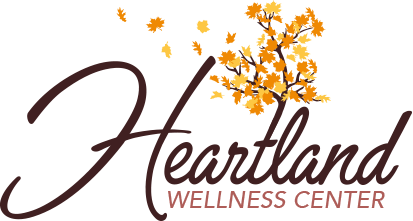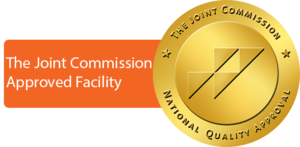Introduction
Addiction recovery is a complex and challenging journey, and the support of family members can play a crucial role in the success and well-being of individuals in recovery. Heartland Wellness Center understands the significance of family support in addiction recovery and offers resources to educate and empower families to provide effective support. In this blog, we will explore the role of family in addiction recovery, discuss the challenges families may face, and provide practical strategies for supporting loved ones on their path to recovery.
The Impact of Family Support
Family support is integral to the recovery process, as addiction affects not only the individual but also the entire family unit. By offering understanding, empathy, and unconditional love, families can create an environment that fosters healing and growth. Family support can contribute to increased motivation, reduced feelings of isolation, and improved mental and emotional well-being for individuals in recovery.
It is important to recognize that family support goes beyond providing assistance during treatment. It involves ongoing support during the transition from treatment to long-term recovery. Family members can play a vital role in promoting relapse prevention, fostering healthy communication, and rebuilding trust within the family dynamic.
Understanding the Challenges
Supporting a loved one in addiction recovery can be challenging and emotionally demanding. It is crucial to have a clear understanding of addiction as a disease and the complexities involved in the recovery process. Education and open communication are key in dispelling misconceptions and reducing stigma surrounding addiction.
Families may experience a range of emotions, including anger, frustration, fear, and sadness. It is important to remember that these emotions are natural responses to a difficult situation. However, it is essential to address these emotions constructively and seek support for oneself as well. Taking care of one’s own mental health is crucial to providing effective support to a loved one in recovery.
Practical Strategies for Providing Support
- Educate Yourself: Learn about addiction, its impact on the individual and the family, and the process of recovery. This knowledge will help you better understand your loved one’s experiences and challenges.
- Foster Open Communication: Create an environment where open and non-judgmental communication can take place. Encourage your loved one to share their thoughts, feelings, and struggles without fear of criticism. Active listening, empathy, and validation are essential in promoting healthy communication.
- Set Boundaries: Establish clear boundaries and expectations for behavior. Consistency and accountability help create a safe and supportive environment for recovery. However, it is important to balance boundaries with compassion and understanding.
- Avoid Enabling Behaviors: While it is natural to want to protect your loved one, it is important to avoid enabling behaviors that may inadvertently support their addiction. Enabling can include providing financial support, making excuses for their actions, or preventing them from facing consequences.
- Attend Family Support Programs: Family support programs, such as Al-Anon or Nar-Anon, offer guidance, education, and a supportive community for families affected by addiction. These programs provide an opportunity to share experiences, learn from others, and gain valuable coping strategies.
- Encourage Healthy Lifestyle Choices: Support your loved one in making healthy lifestyle changes. Encourage physical exercise, nutritious eating habits, and engaging in activities that promote overall well-being. These changes can contribute to better mental and physical health, reducing the risk of relapse.
- Celebrate Milestones: Celebrate your loved one’s achievements and milestones in recovery. Acknowledge their progress, no matter how small, as it reinforces their motivation and sense of accomplishment.
- Seek Professional Help: Encourage your loved one to seek professional support, such as therapy or counseling, to complement their recovery journey. Mental health professionals can provide specialized guidance, therapy, and interventions tailored to their individual needs. Heartland Wellness Center offers comprehensive services, including individual counseling and therapy sessions, to support individuals and families in addiction recovery.
- Practice Self-Care: Taking care of your own well-being is crucial when supporting a loved one in addiction recovery. Prioritize self-care activities that promote relaxation, stress reduction, and emotional well-being. Engage in activities that bring you joy, practice mindfulness or meditation, and seek support from friends, support groups, or a therapist.
- Be Patient and Understanding: Recovery is a process that takes time, and setbacks may occur along the way. It is essential to approach your loved one’s recovery journey with patience, understanding, and empathy. Encourage their efforts, celebrate progress, and offer support during challenging times. Remember that recovery is a lifelong journey, and your unwavering support can make a significant difference in their success.
In Conclusion
The role of family in addiction recovery is invaluable. By providing understanding, empathy, and consistent support, families can create a foundation of healing and growth for their loved ones. Heartland Wellness Center acknowledges the importance of family support and offers resources and programs to educate and empower families in providing effective support. By implementing practical strategies such as education, open communication, setting boundaries, and seeking professional help, families can contribute to the long-term recovery and well-being of their loved ones. Together, families and individuals in recovery can create a supportive environment that promotes healing, resilience, and lasting change.

